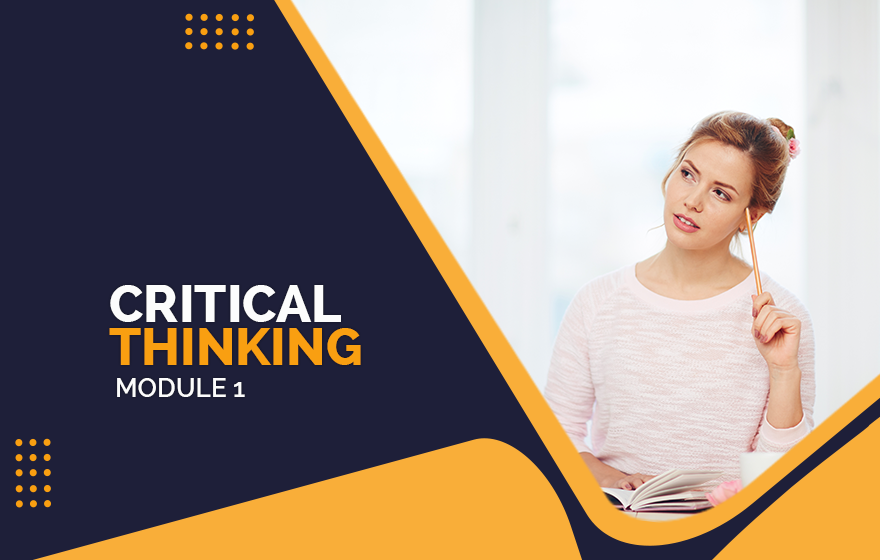
4 Courses

Thinking Skills
Critical Thinking Skill Fundamentals
Introduction
While being intelligent and passionate often results in work effectiveness and efficiency, that does not guarantee you to make a thoughtful and critical decision or solve a problem systematically. In times of crisis such as a pandemic or global recession, it is crucial that intense emotions and impulses do not cloud over critical thinking in the workplace. Professionals should apply critical thinking in all aspects of workplace operations, to avoid any kind of costly and recurring mistakes. From recruitment to marketing to finance, all the organizational departments must emphasize practicing critical thinking for undertaking any workplace decisions. Critical thinkers bring creative solutions to the table to solve business problems. If you are able to objectively evaluate information to make informed decisions while facing disruptions, you will have a much better chance to impress an employer.
This course equips learners with problem-solving skills by developing the 5 core critical skills identified as pertinent to critical thinking by the Singaporean Government: Creative Thinking, Decision Making, Problem Solving, Sense-Making, and Transdisciplinary Thinking.
Course Objectives
Upon completion of the course, learners will be able to:
- Connect ideas or information to propose and test ideas, improvements, and solutions which challenge current assumptions or ways of working (creative thinking).
- Follow processes to make decisions that achieve intended goals using given information and guidelines (decision making).
- Identify problems and implement guidelines and procedures to solve problems and test solutions (problem-solving).
- Organize and interpret information to identify relationships and linkages (sense-making).
- Explore concepts from outside one’s field of expertise to supplement one’s knowledge, proficiency, and work practices (transdisciplinary thinking).
Course Outline
- The course will be presented in SEVEN major parts:
- What is Critical Thinking and Why is it important?
- Ideation and Problem Identification Techniques
- Information Collection Tools
- Experimentation Techniques
- Knowledge Management
- Training Materials
- Decision Making
Learning Methodology
- In this course, you are required to undergo all SEVEN parts in the e-learning section. Learners are encouraged to read all the reading materials and videos provided in the module to deepen and enhance their understanding of Critical Thinking Skills.
- Learners are encouraged to spend 3 to 4 hours a week to complete the course within the 2-week time frame upon enrolment.
- Learners are required to participate and answer questions in the discussion boards, quizzes, and assignments.
- Learners are required to get started with the e-learning before attempting the learning activities and attending the Q&A webinar.
- Learners are required to attend a webinar conducted by the Trainer and guest speakers where learners are encouraged to engage in the Q&A sessions.
- All of the above activities must be completed to pass this module.


